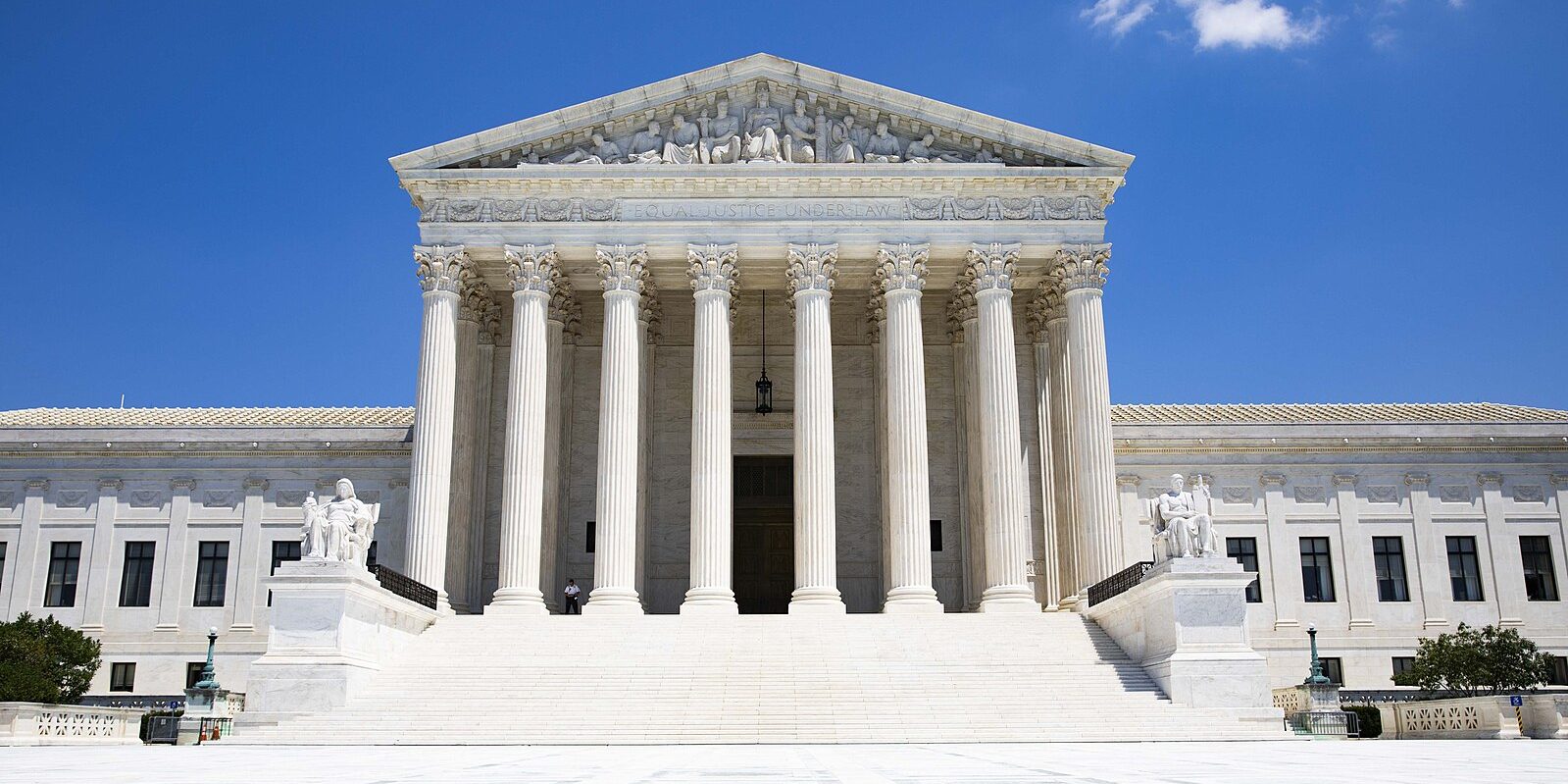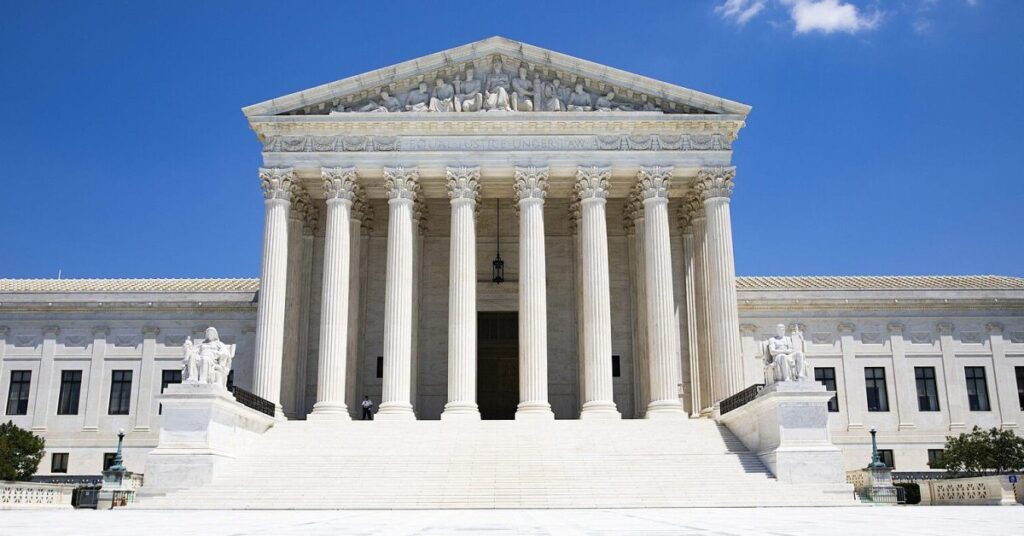
The US “Supreme” Court has just issued an opinion that would overturn Chevron v Natural Resources Defense Council, ensuring more government gridlock and casting activist judges in the place of career scientists to decide specific answers to some of the most crucial questions of the day, such as those related to climate emissions and other environmental issues.
Among many incredibly stupid opinions the court has issued recently, this is among the stupidest, and we’re going to go into why.
Just two days after issuing an opinion that would legalize the kind of corrupt bribes that they themselves have taken, and one day after once again ignoring the Clean Air Act and claiming that the federal government can’t regulate interstate emissions, the Court issued an opinion today in Loper Bright Enterprises v Raimondo that would invalidate a previous ruling, Chevron v Natural Resources Defense Council.
The original Chevron case was actually decided in favor of Chevron. Reagan’s EPA, which at the time was administered by Neil Gorsuch’s mother, Anne Gorsuch, had attempted to ease regulations on oil companies, which NRDC sued over. The court decided that the EPA’s interpretation would stand, giving Anne Gorsuch and the oil companies a big win.
The Chevron case created what’s called “Chevron deference,” which means that when a law is unclear in its details, courts should defer to reasonable interpretation of professionals in a government agency as to what those details mean. This doesn’t mean that agencies can make it up as they go along, just that they can fill in the blanks left by Congress.
In the last four decades, this ruling has become the foundation of much of administrative law in this country.
After all, legislators in Congress aren’t scientists, so will often pass a law saying something like “the EPA should regulate harmful air pollutants,” and leave it up to the EPA to decide what pollutants those are and how they should be regulated, and how those regulations should change over time.
Judges also aren’t scientists, so it’s reasonable for judges to defer to interpretation by professionals who have a lot of data and take a lot of time to craft specific regulations when they are told to do so by the legislature. In the course of crafting and updating those regulations, things will come up which were not anticipated by Congress, and someone needs to make that decision.
Agencies like EPA or NOAA, who work with some of the world’s most respected climate scientists, are a great place to go to find up to date recommendations and answers to those questions. And Chevron deference is what has allowed these agencies to work properly for the last several decades, and is what ensures they can continue to work as we confront climate change, the largest problem humanity has ever caused.
This sort of deference is essentially necessary for effective government. And any lawyer or law student can tell you how important it has been in establishing the last several decades of administrative law.
And it has benefitted electric vehicles, for example by allowing the EPA to set emissions rules that will save lives and money, or allowing the IRS to tweak guidance on the EV tax credit to make accessing it easier for consumers.
Without Chevron deference, it would mean that reasonable rules to smooth out implementation of laws can be challenged and reinterpreted by individual judges who are ignorant of the issues involved – and plaintiffs, likely in the form of a big polluting company who wants to skirt regulations to harm you more, can go forum shopping to find a specific judge who they know ahead of time will rule in their favor and against the public interest.
To be clear, Chevron deference only applies to situations where law is ambiguous, and where the agency’s interpretation was reasonable and arrived at through proper government processes – adhering to public comment requirements and the like. If an agency interpretation is arbitrary, it could still be thrown out. This is all covered in the Administrative Procedure Act (APA) and in previous court rulings narrowing Chevron.
Court’s opinion creates more gridlock, is “dictatorship from the bench”
But now, in the court’s opinion, the foundation of administrative law in this country for decades should all be gone. In Raimondo, the court opined on the validity of an NOAA regulation on the fishing industry. Lower courts in fact did not rely fully on Chevron deference in their rulings, finding that the statute was not ambiguous in the first place. But the Court took this opportunity to opine on Chevron anyway, despite its limited applicability to the facts of this case.
Under the Court’s opinion today, rather than unbiased career scientists weighing in on complex issues and helping to fill in the blanks that Congress didn’t anticipate or understand, that responsibility would now lie in the hands of oft-ignorant politically-appointed judges. These judges will be called on to make decisions on the suitability of specific regulations in any number of fields they are not qualified in: air quality, technology, labor regulations, tariff policy, farm subsidies, housing development, privacy, and many more issues that they know nothing about.
In short, it means more gridlock of the type Americans hate, and it means more “activist judges” that everyone claims to dislike. Even in the ideal situation envisioned by defenders of today’s decision, where a non-gridlocked Congress is able to quickly answer any agency question with a new law that the body comes together to agree upon, there will still be ambiguities and inefficiencies from having to consult another non-professional body for ambiguous scientific questions.
If you were tired of government waste and inefficiency, bogged-down court systems that take years to get anything done (in direct violation of the 6th amendment), then boy howdy, guess what’s coming next.
You know that “legislating from the bench” you’ve heard of? This is it, explicitly. The Court has opined that it should have final responsibility for crafting each and every regulation, even if it’s on a topic they know nothing about (or worse, maybe it’s a topic they have a direct personal interest in, and yet will rule on anyway).
It also means less participatory government. Agencies already were not allowed to go off script and make up whatever they wanted. Deference was only given if their interpretations were reasonable, were related to a question not answered explicitly in the law in question, and were arrived at after seeking comment from stakeholders (the public, industry, scientists, and so on). The Court could already throw out unreasonable interpretations or ones that engaged in arbitrary & capricious rulemaking (or the Court could just make up their own nonsense, as they’ve done before).
Now, the Court has officially interposed itself in front of the public and its elected officials in both the executive and legislative branches. Instead of voters, scientists, trade and public interest organizations, unions, and so on having a say, now it’s just an unelected court who will have their way – five of whom were appointed by people who lost their respective presidential elections, by ~500 thousand and ~3 million votes respectively.
Worse than “legislating from the bench,” this is a dictatorship of the bench. The bench has decided that theirs is the entire purview of both the executive and legislative branches.
And it was just waiting for a case where it could do so – because Neil Gorsuch (another illegitimate appointee, who wrote his own concurring opinion today) has wanted to overturn Chevron for a long time. He pre-judged this case long ago, well before the specifics of this case came along, and has just been waiting to implement his judgment. This is generally considered a violation of jurisprudence.
As has often recently been the case, the court shows complete ignorance of not only the legal and governmental issues that their opinion will cause, but ignorance of their own recent actions. Take this choice quote from today’s opinion:
Chevron insists on more than the “respect” historically given to Executive Branch interpretations; it demands that courts mechanically afford binding deference to agency interpretations, including those that have been inconsistent over time, see id., at 863, and even when a pre-existing judicial precedent holds that an ambiguous statute means something else, National Cable & Telecommunications Assn. v. Brand X Internet Services, 545 U. S. 967, 982. That regime is the antithesis of the time honored approach the APA prescribes.
In this passage, John Roberts claims that agency interpretations are deficient because they are “inconsistent over time.”
Nevermind that agency interpretations are necessarily inconsistent, given that the world and technology changes (e.g., as technology advances, more efficient vehicles become more practical and therefore tighter emissions limits become possible), but Roberts ignores his own court’s inconsistency on all sorts of matters in this passage.
And in terms of law, this opinion would invalidate several decades of administrative law, and has left lawyers today wondering how it will even be possible to do their job with this grenade thrown right into the center of the field.
If a government body should have its toys taken away for inconsistency, then what Roberts is arguing here is that he himself should be ignored.
In that part of the opinion, at least, we agree. Roberts and his illegitimate court are the antithesis of effective government, and are not working in the interest of law and order or in favor of the public. Their opinions should be treated as just that – opinions, from private individuals who are clearly not interested in law or government.
FTC: We use income earning auto affiliate links. More.

